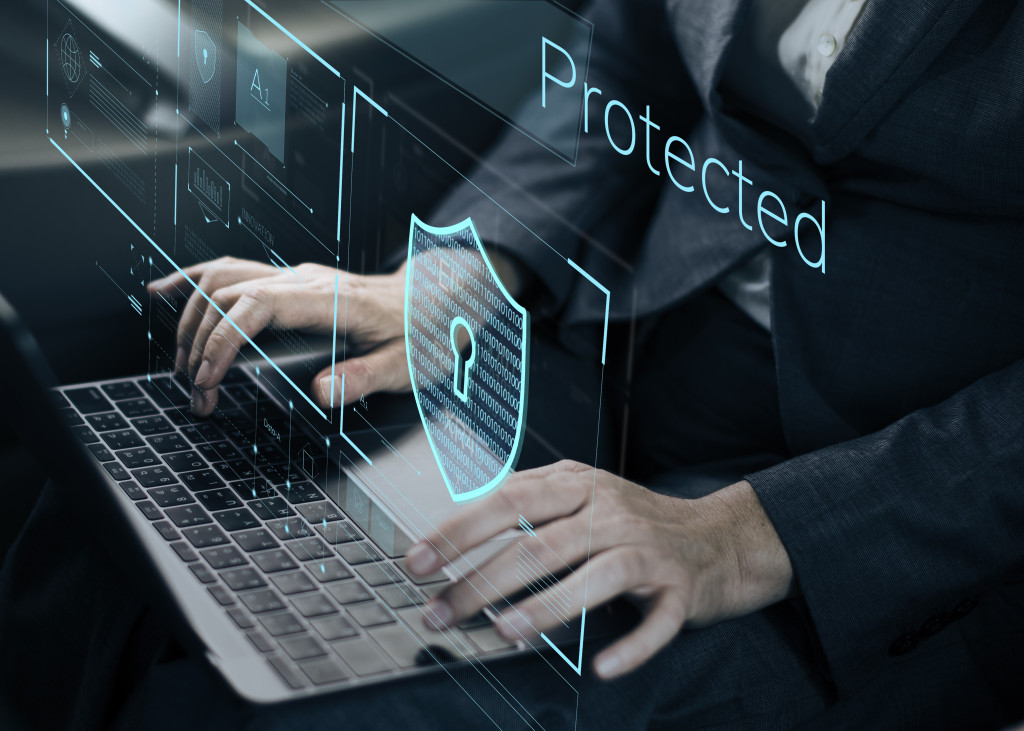As the real estate industry continues to grow and evolve, it is increasingly essential for real estate business owners and operators to prioritize security. A staggering $10.5 trillion is lost to cybercrime each year globally. By taking proactive measures to protect your business from potential security, you can mitigate the risks and safeguard your customers’ information. Here are five tips to help you improve security for your real estate business.
1. Use a Secure Connection
Using a secure connection is one of the best ways to ensure the security of your real estate business. You should use secure protocols such as SSL/TLS for transferring and receiving data, including login credentials, passwords, files, and other sensitive information. Additionally, any website that deals with financial transactions or customer data should be secured with an SSL certificate. This can help protect your data from malicious attacks and hacking attempts.
You should also use a VPN or other secure network solution to protect your data when sending and receiving it over the internet. Using a virtual private network (VPN) is an important security measure that can help protect the data of your real estate business. VPNs create a secure tunnel between two computers, allowing users to access resources over the internet securely and anonymously. This is especially useful when dealing with sensitive customer information or financial transactions, as it prevents third-party access to the data.
2. Use Firewalls
Firewalls are essential to any security system and should be used to protect your real estate business from threats. Firewalls act as a barrier between your network and the internet, monitoring incoming and outgoing traffic to ensure that only authorized users can access your data. They also help prevent malicious attacks by blocking certain types of traffic or activity. Not only can firewalls be configured to detect suspicious activity, but they can also alert you so that you can take action immediately.
It is essential that your firewall is up-to-date and correctly configured to provide the highest level of security. This is because new threats are constantly emerging, and your firewall needs to be able to detect and block them to keep your data safe. You should also consider using a managed firewall solution that provides additional features such as automated patching, monitoring, and reporting.
3. Use Strong Passwords

Using strong passwords is one of your real estate business’s most critical security measures. Weak passwords can easily be guessed or cracked, which could make it easy for malicious actors to gain access to your data and systems. You should create unique, complex passwords that are hard to guess and include upper- and lower-case letters, numbers, and symbols. Additionally, you should avoid reusing passwords across multiple systems.
You can also use a password manager to help you manage the different passwords for your various accounts. Password managers are programs that store your passwords in an encrypted database, making them easy to access but difficult to crack. This ensures that your passwords remain secure and your data stays safe from prying eyes.
Additionally, you should also enable two-factor authentication on any accounts that allow it for extra security. Statistics show that two-factor authentication can reduce the likelihood of an account being hacked by up to 99%. This extra security measure ensures that even if a hacker were to guess your password, they would still be unable to access your account without the additional verification code.
4. Find a Reliable Security Company
It is vital to hire a reliable security company when protecting your real estate business from malicious threats. Good security guard firms can provide the expertise and experience necessary to identify potential vulnerabilities and develop strategies to defend against them. They will be able to help you implement measures such as firewalls, encryption, two-factor authentication, and more to keep your data safe.
Additionally, they can provide ongoing monitoring and maintenance of your systems to ensure that any new threats are detected quickly and addressed before they cause damage. This proactive approach can help you stay one step ahead of malicious actors, keeping your business secure at all times.
5. Educate Your Employees
Perhaps the most crucial step in ensuring the security of your real estate business is to educate your employees. Your staff must be aware of the risks posed by cybercriminals and their responsibility to protect sensitive data. Ensure they understand the importance of using strong passwords, secure networks, and not leaving confidential information unattended. You should also have regular training sessions to ensure that your employees are up-to-date on the latest security trends.
Finally, you should also ensure that your employees understand the consequences of failing to follow security protocols. Ensure they know the penalties for accessing unauthorized data or failing to report cyber incidents. This will help deter malicious activities and ensure that your employees take data security seriously.
In Closing
Security is essential for any real estate business, as malicious actors always look for ways to exploit vulnerabilities and gain access to valuable data. By implementing the tips outlined above, you can ensure that your business remains secure and protected from potential threats. Firewalls, strong passwords, and reliable security companies can contribute to a secure business environment, so consider investing in these measures to protect your real estate business.




